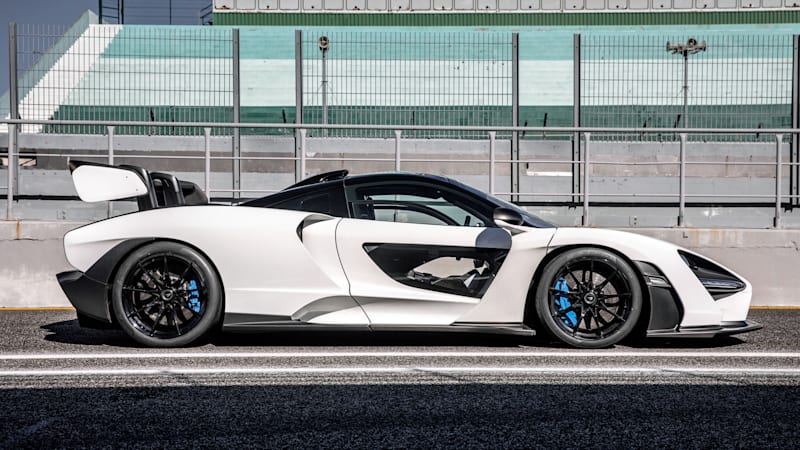Every McLaren 600LT in the U.S. recalled over fire risk
McLaren has issued a recall that applies to every example of the 600LT and 600LT Spider registered in the United States. Built during the 2019 and 2020 model years, the cars included in the campaign are fitted with a faulty joint in the cooling system that could cause a fire.
Assigned recall number 23V-484 by the National Highway Traffic Safety Administration (NHTSA), the campaign includes 652 units of the 600LT built between July 4, 2019, and July 16, 2020. McLaren estimates that the defect is present in 100% of the recalled cars. It explains that the “outboard right-hand radiator joint between the temperature sensor housing and the hose running from the outboard radiator to the housing can potentially leak due to inadequate sealing of the joint.” The leak can occur while driving at “high vehicle loads,” like on a track.
If the joint fails, coolant can come in contact with hot components in the engine bay and cause a fire. McLaren’s engineers looked into the issue and traced the problem to the joint’s basic design. Luckily, it sounds like the fix is fairly simple. Owners will be asked to bring their 600LT to an authorized dealer so that a technician can replace the coolant hose, the temperature sensor housing, and the clamp. McLaren adds that the redesigned clamp will ensure the joint doesn’t leak, though it hasn’t explained how the new design differs from the existing one.
The company hasn’t decided when it will notify owners of affected cars.



